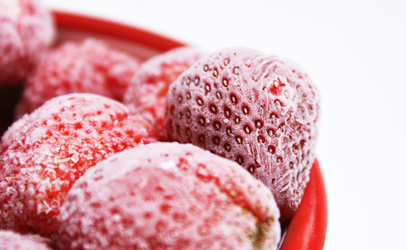Austria has become part of a multi-country Hepatitis A outbreak with 31 confirmed cases linked to frozen strawberries imported from Poland.
The outbreak of hepatitis A virus (HAV) is connected to the one recently declared over in Sweden which affected 20 people in six counties. Of these cases, 17 were confirmed and three were probable. Dates of symptom onset ranged from May 30 to July 10. Ages ranged from nine to 92 years and 13 out of 20 were women.
In July and August, Austria recorded nine hepatitis A cases with the source unknown.
Researchers reported in the Eurosurveillance journal that by sharing the sequence information identified in Sweden internationally, 14 cases in Austria were found linked to strawberries from the same producer.
Genotyping of the hepatitis A outbreak strain in Sweden showed of 17 of the 20 cases confirmed an identical genotype IB strain. Environmental investigations and interviews with kitchen personnel found strawberries had not been heated adequately before serving. Following the outbreak, the juice bar chain where at least 10 cases had fallen ill stopped using frozen strawberries in smoothies and changed to pasteurized frozen pellets of the fruit.
The incriminated batch of frozen strawberries was withdrawn in June but it had best before date April 6, 2020. In total, 1,664 packages with 5 kg strawberries each were removed from the Swedish market.
Almost two months after the initial outbreak alert in Sweden, Austria reported a case of HAV infection with a strain indistinguishable from the Swedish outbreak strain. It can take up to six weeks after exposure for symptoms to develop.

In late August, the Austrian reference laboratory for viral hepatitis reported five cases sharing the Swedish outbreak genotype IB strain to the Ministry of Health (MOH). The Austrian Agency for Health and Food Safety (AGES) was told to investigate the outbreak.
As of early October, 36 cases of laboratory-confirmed acute hepatitis A had been reported to public health authorities in Austria since June. Of those, 14 met the definition of a confirmed case and four were classified as non-outbreak infections based on sequence-typing data.
For confirmed cases, disease onset ranged from June 8 to Sept. 20, age range was between 5 and 70 years, with eight males and six females affected. Twelve patients ate strawberry ice cream during the incubation period and nine remembered the restaurants where they ate it.
For the remaining 18 cases, sequence-typing data was not yet available and patient interviews regarding food exposure during their incubation periods is ongoing, according to the researchers.
Since mid-May, only one wholesaler in Austria purchased frozen strawberries from the producer in Poland, but further distribution included two wholesalers in Slovakia and one ice cream producer in Italy.
The Austrian importer of frozen strawberries from the Polish producer is expecting a supply of 22 tons at the end of 2018 and has requested evidence for a HAV-negative test result of samples. It has also asked for a guarantee from purchasers that frozen strawberries are heated before consumption.
There are several challenges with HAV outbreaks related to berries, according to the researchers.
“First, the trace back can be difficult as berries are typically harvested by one producer, then packed by another food business operator whereby batches may then be mixed or split. Another point to consider during HAV outbreak investigations is the long incubation period of hepatitis A up to six weeks. After such a long time, it can be difficult to recall food consumption and collect food leftovers. Furthermore, the time from the onset of symptoms to a primary diagnosis and the sequence information can take several weeks,” they said.
“In the current outbreak, leftovers from the suspected frozen strawberries in Sweden were sent to Livsmedelsverket and the presence of HAV could be confirmed by real-time PCR and Sanger sequencing, providing evidence for the source of infection. While being invaluable in tracing the source of infections, the molecular detection of viruses in food is challenging.”
Researchers also said boiling recommendations could be considered for frozen strawberries in Sweden. Such advice is already in place for frozen, imported raspberries because of the risk of norovirus.
(To sign up for a free subscription to Food Safety News, click here.)

